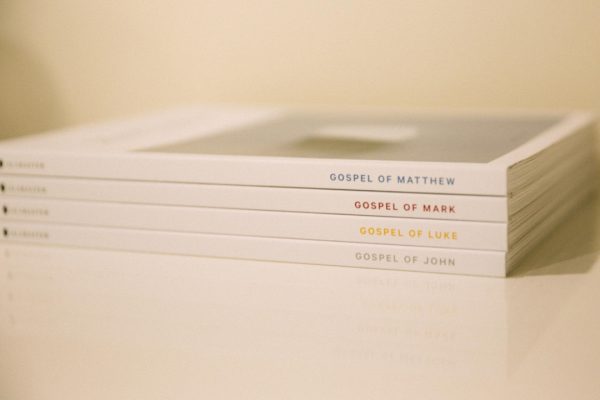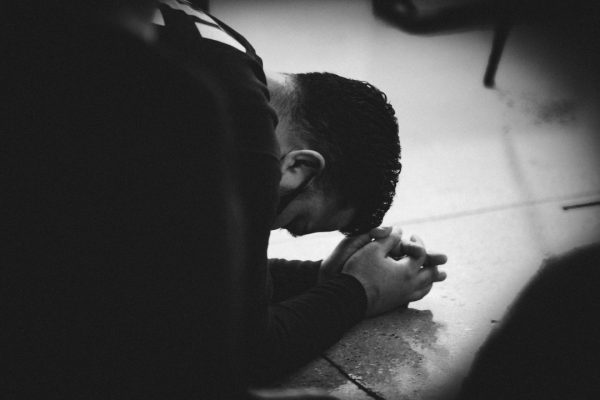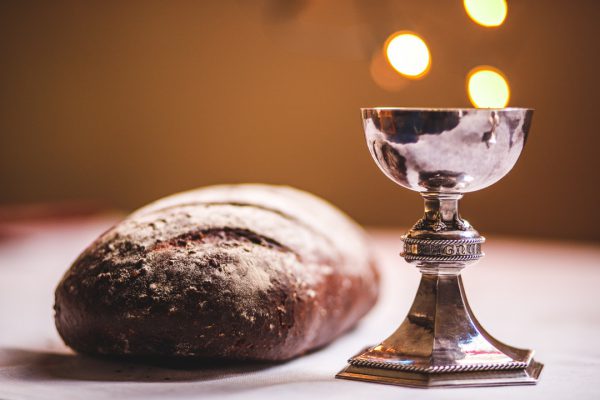For over 1,500 years, the Christian church has observed what is known as the Church Calendar, with five seasons based on the gospel of Jesus Christ: Advent (the birth of Christ), Epiphany (the revealing and life of Christ), Lent (the temptation and death of Christ), Easter (the resurrection of Christ) and Pentecost (the gift of the Spirit of Christ). This practice was inspired by the annual festivals of God’s people in the Old Testament and has served as a tool to help Christians not only remember the gospel story but also order their own lives around that story.
In addition to gathering weekly on the Lord’s Day, we believe that observing the seasons of the Church Calendar would be beneficial for the life and worship of our church. There are several reasons why we believe this change is not only a helpful but necessary practice to make ECC even more Christ-exalting and gospel-centered.
God’s people have always organized their lives and worship around a liturgical calendar.
The idea of God’s people ordering their lives around a pattern of celebration and worship is rooted in the very creation of the world. In the beginning, God established sacred cycles of day, week, and year. The sun, moon, and stars were created and given by God for signs and “seasons,” which, more literally, means the appointed festival times (Gen. 1:14). God also blessed and set apart the seventh day of the week, which would come to be linked with Israel’s Sabbath and their annual cycle of feasts (Ex. 20:8-11; 23:10-16).
Moreover, when God created his covenant people at Mt. Sinai, he gave them feasts and festivals to observe in addition to the weekly Sabbath. These were special community events that commemorated defining moments in redemptive history. Israel’s annual festivals―Passover, Unleavened Bread, First Fruits, Pentecost, Trumpets, Atonement, and Booths―helped them not only remember what God had done for them but who they were as God’s chosen and redeemed people.
With his resurrection from the dead, Jesus Christ inaugurated the long-awaited new creation, and from the earliest days of the church, prominence was given to the “first day of the week” (Acts 20:7; 1 Cor. 16:1-2; Rev. 1:10). The church began gathering for worship on Sunday to celebrate their union with Christ in his resurrection, their already-not-yet entry into the final Sabbath rest (Heb. 4:1, 3), and as a way to acknowledge that “there remains a Sabbath rest for the people of God” (Heb. 4:9). Rather than keeping the Jewish festivals, the Christian church―as renewed, restored, and eschatological Israel―came to develop their own “calendar,” inspired by Jewish traditions, as a practical way to orient their lives around what God in Christ had done for them.
So, by observing the Church Calendar, we are connecting ourselves to the historic Christian church and the people of God since the creation of the world.
Timekeeping is part of virtually every nation and culture. The Kingdom of God is no different.
All nations and kingdoms order their lives around a particular calendar. Holidays are observed and festivals are held that celebrate a country’s independence, the births of its leaders, its victories in battle, and other important national events. These days of remembrance were created for fostering the cultural identity of a nation’s citizens and strengthening their social bonds. As we celebrate national holidays we are reminded of our past, of who we are, and have a greater love for our country and our fellow citizens instilled in us.
The same is true of the holy days that Christians remember and celebrate. As Christians, we are first and foremost citizens of Christ’s kingdom, which has been established by the death and resurrection of our Lord (Mark 1:15; Phil. 3:20-21; Col. 1:13-14; Heb. 12:22-23). Because the church is an outpost, an embassy, of Christ’s heavenly kingdom on earth, we must keep time differently. Leithart sums it up well: “Baptismal water is thicker than blood, and the church, born of water and the Spirit, is bound as one body more firmly, more substantially, than any nation born of fire and blood. That means the church calendar must be the Christian’s primary calendar.”1Peter J. Leithart, On Earth as in Heaven: Theopolis Fundamentals (Bellingham, WA: Lexham Press, 2022), 330. If as Americans we love to celebrate historical events like the Fourth of July and Memorial Day, how much more as Christians should we be eager to celebrate the redemptive-historical events of our true and better homeland?
Observing the Church Calendar helps us remember and reorient our lives around the Christian story.
While obviously not a direct command from the Apostles or our Lord, the Church Calendar has been an incredibly helpful tool for teaching the faith and helping Christians think like Christians. We already do this by celebrating holidays like Christmas, Good Friday, and Easter. We recognize there is value in observing these special days. The Church Calendar simply helps us be more consistent in this practice. It helps us celebrate not only the birth, death, and resurrection of Christ, but also his ministry (Epiphany), his suffering (Lent), and the gift of his Spirit (Pentecost) and his coming in glory at the end of the ages (Advent).
As we remember the Christian story and begin to order our lives around the events of redemptive history, we learn to differentiate God’s time from the world’s time. The Calendar helps us know what time it really is: the time between the first and second comings of the risen Lord Jesus. His reign has already begun and he is right now putting his enemies under his feet through the witness of his church. And so, through readings, prayers, fasts, and other meaningful practices, the seasons of the Church Calendar help us recalibrate our minds and reorient our hearts away from the false stories of the world back to the Christian story of what God has done for us and our salvation through his Son and his Spirit.
The Church Calendar can come across to many as legalistic or as empty ritual, given some of the abuses seen throughout Church history. It can also feel strange and foreign to those who are new to church or who grew up in churches that didn’t follow this calendar. But the seasons of the Church are really just a way to center our lives around the gospel by entering the story of Jesus each year. While we should always make sure we’re not falling into meaningless routines and simply going through the motions (as is the case with every aspect of the liturgy), it’s hard to think of a better way we can make the best use of our time each and every year.2The Village Church, Seasons: Enter the Story of Jesus (Flower Mound, TX; 2017), 7.




